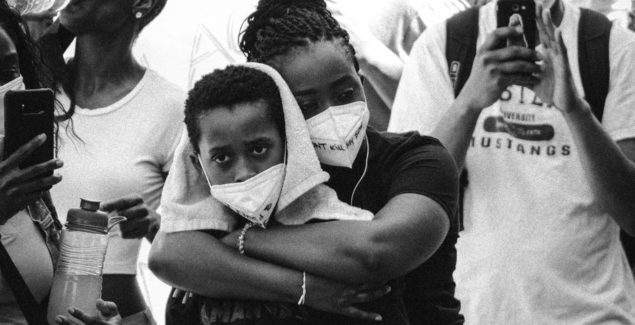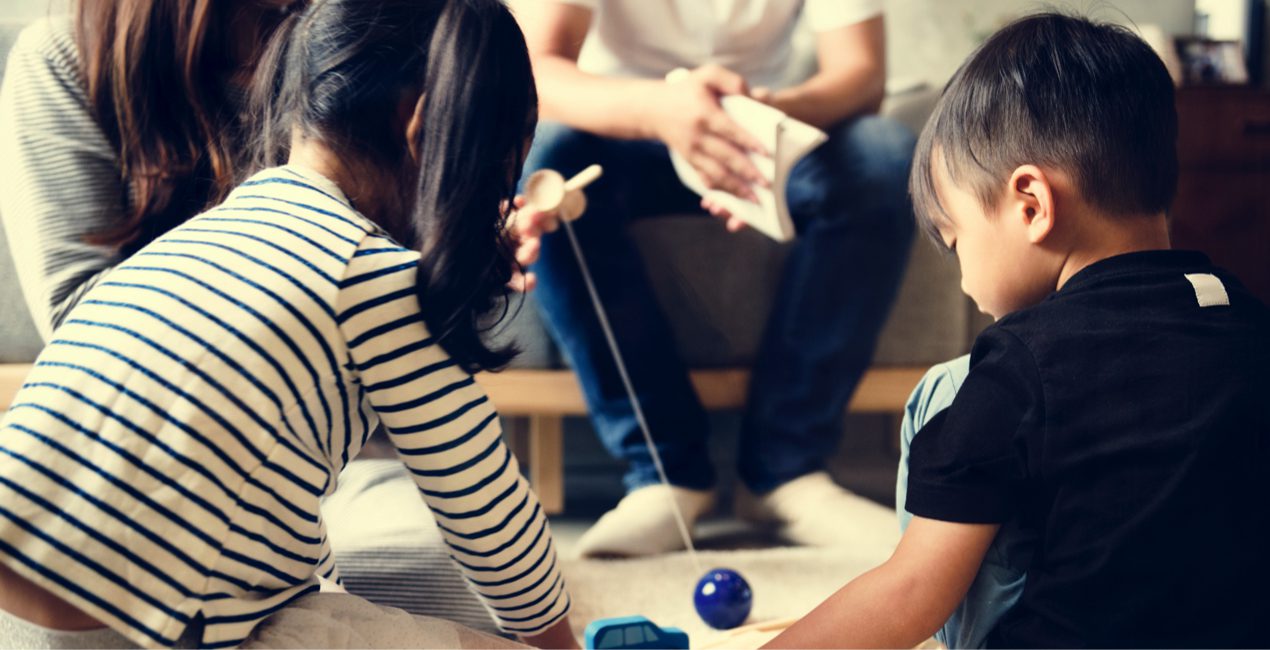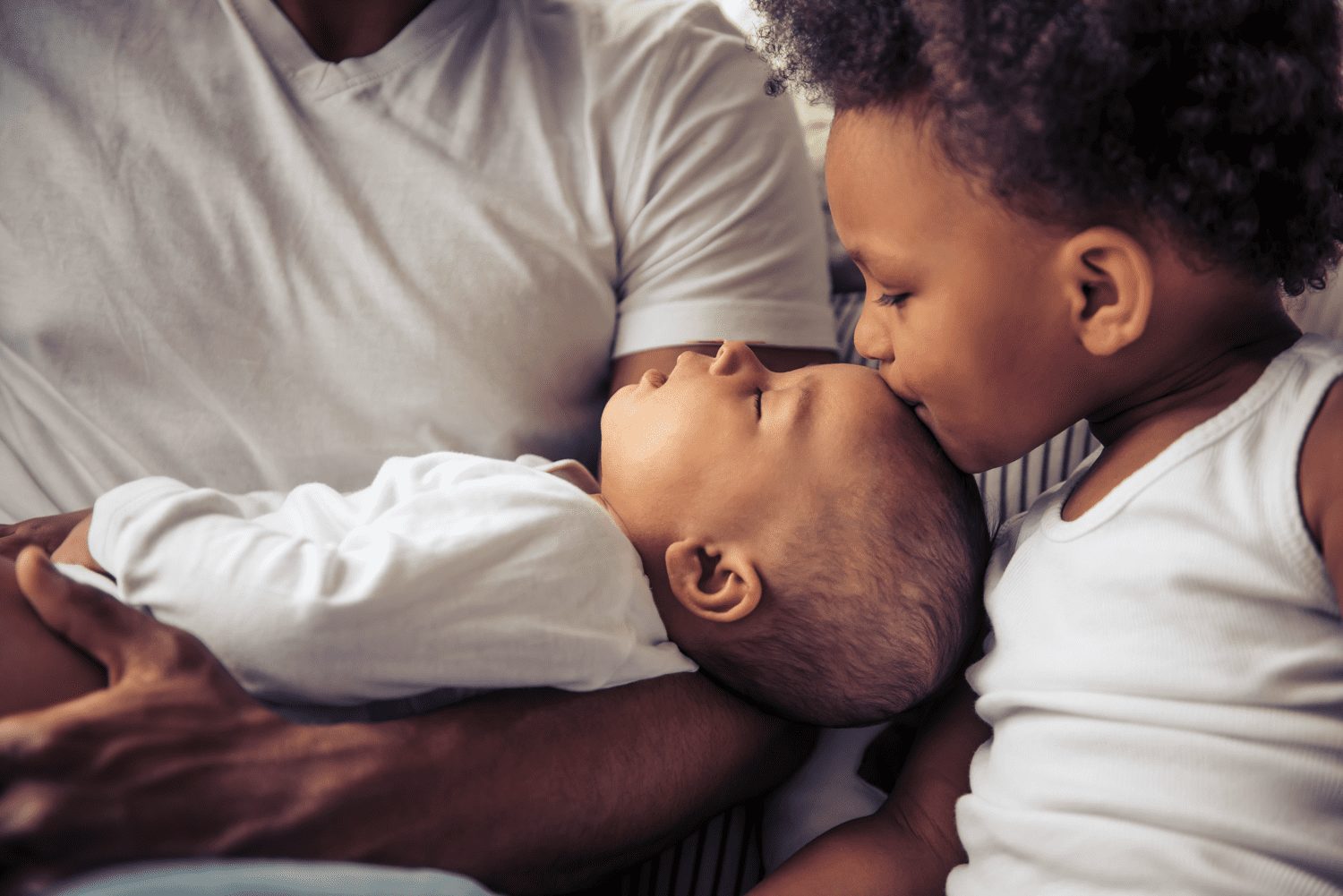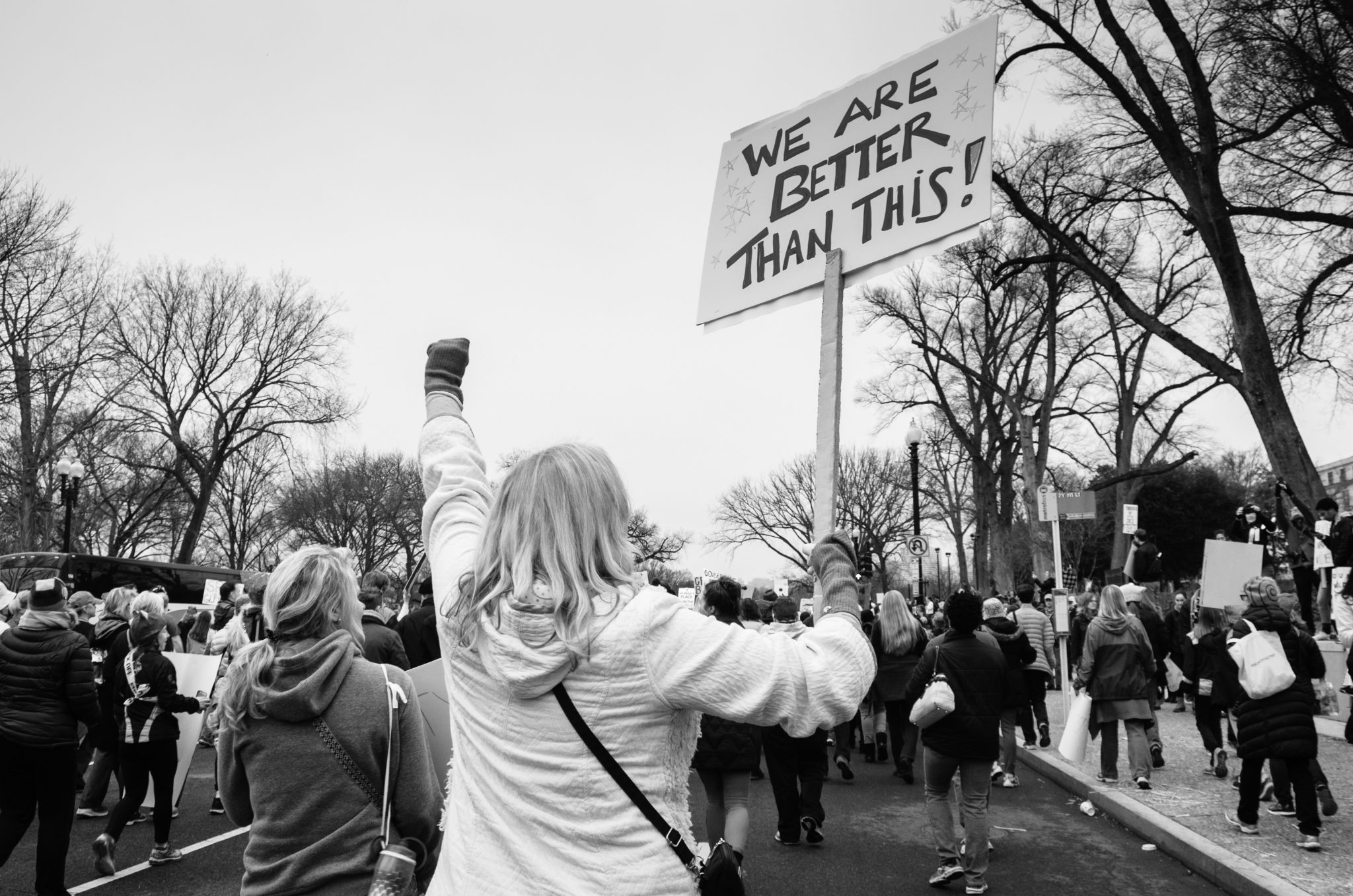Ways to Emotionally Support Your Teen in Responding to Racism and Racialized Violence

Posted in: Parenting Concerns, Teenagers
Topics: Hot Topics
There is so much out there on how to talk to your little ones about the racism and racialized violence going on in our world today. However, there isn’t as much, in the way of guidance, as it relates to talking to your older children, teenagers, or young adults who may still reside at home.
Given coverage of racialized violence, discrimination, and tension, along with injustice and inequality, your adolescent may feel upset, scared, or anxious. Developmentally, adolescents are increasingly able to understand the meaning of fairness and oppression. Teens of color often know first-hand about profiling and their safety risks in in the world. Parents of color need to carry the burden of having conversations about systemic racism. Similarly, parents of Asian decent are needing to have more conversations about racism, given the rise in anti-Asian violence. These discussions should start quite early in our homes, as racism is and has been woven tightly into the fabric of our nation.
Conversations about racism and racialized violence should take place in all families regardless of race, ethnicity, or cultural background. All of us have biases, and all of us need to raise the next generation of youth to welcome diversity, inclusion, and know their own biases.
These emotionally charged and difficult conversations will ultimately be steered by parents and caregivers. What you say and how you say it will be guided by what we know about our teens with respect to their sensitivities, how they respond to stress, and how much distress they can tolerate.
Needless to say, these are difficult conversations. And they should be ongoing. Here’s some guidance to consider, no matter where you are in your journey.
Parent Tips – Your Ongoing Conversation About Racism and Racialized Violence
- Create a Safe Space to Talk. It’s really important that your teenagers feel they can say whatever they are thinking and feeling about racism, and that you are open to listening. Be open to all their points of view and validate that their thoughts and feelings are real and true for them. Be aware of your tendency to judge or criticize, and keep a lid on it.
- Prepare for Push Back. My sister asked, “Isn’t it easier to talk to older kids?” As I pondered her question over a long pause, my response to her, albeit not particularly helpful, was that it’s different and difficult to compare side-by-side to talking with younger kids. With little ones, there is a great deal of listening, educating, and comforting. Often, the younger ones subscribe to the values and practices of the home without much questioning. But with teens, while you are still listening, educating, and comforting, expect some push back. Developmentally, they are struggling with their own identity, ideas, and positions, and it’s normal for them to question you (as well as themselves). Your job is to accept that a spirited debate is one way they can both assert themselves and understand the subtleties of an issue.
- Tolerate & Embrace Emotion. After the tone is set with a safe and open atmosphere, you can expect some conversations to be emotional. It’s possible that your teen may not have personally had a negative encounter, but have friends who’ve described bad or scary experiences. It is not easy for a teen of color, if accosted by a police officer, to remain calm and accept the situation – even if unfair – and not escalate. Whether or not they’ve had a direct experience, feelings of sadness, disappointment, anger, or resentment may be prominent. Or they may feel outraged that some groups in our society are fundamentally separatist. They need you to let them know that their feelings are normal, that you have them as well, but that we can only change society by acting in a way that does not fan the flames.
- Listen! Listen! Listen! Teens want to be heard. They will have a number of questions and reactions to their life experiences or what they see in the news. Let them tell you their reactions. Teens want to be heard and understood. The last thing they want is a lecture! It is our job to let them talk, process, and if need be, vent.
- Provide Support. Teens want to be independent and are struggling with separation. They need the support, validation, and compassion of parents and caregivers. Ask them what you can do to help them. Ask them what kinds of actions, participation, or advice they are seeking. And it may not be you alone that provides the support. It might be a grandparent who lived through the early Civil Rights Movement, or an older sibling who has experienced racism firsthand or, if white, has seen bias around them.
- Control Your Own Anxiety. This may pose a challenge and will require extra effort – particularly if your anxiety is triggered – if you are truly worried about your child’s safety, or if you and your teen’s views do not align. Being mindful that nonverbal communication can either encourage the dialogue with your child – which is the goal – or discourage and shut it completely down. If a teen thinks they are making you anxious, they are not likely to open up. So, if you do feel anxious, angry, upset, or worried, let them know – it is far better to share what you are feeling and why, than it is to hide it.
- Ask Where They Get Their Information. Given the numerous platforms through which information is passed along – social media, TV, the internet, or from other relatives, friends, parents of friends – ask them what they have heard and through what source. If on digital media, you could even ask them to show you, so you could make this the basis of a conversation. They need your input to know what real news, opinion, or frank misinformation
- Learn From Your Teen. As we engage in this process with our older kids, we may be surprised and find that we, ourselves, are learning a lot from them. The process of active and engaged listening can be an amazing opportunity to reconnect with your teen and see them in a new light. Often, they will raise social and political ideas, possible solutions to problems, or ways of understanding society that you have not considered. This process can be a rich experience through which you and your teen relate to one another in a way you haven’t prior to now.
- Share Your Experiences and Family Stories. All kids love family narratives. Share an experience that you have had, as a youngster or in present day, that may resonate with your child. If your teen has questions or seems a bit confused by some of the events today, now may be a good time for some light by contrasting or amplifying them with what you or a family member has seen or endured. It can be reassuring to put what is happening today into an historical context, and using family stories can be a great way to do this.
- Talk About Activism. Demonstrations and activism are alive and well, all in the pursuit of justice. Your teen or young adult may be at a place where they are trying to find their voice, or they may have something that they clearly want to communicate to others. They may feel the need to protest. They may feel that marching in the streets as a part of a community effort fosters their sense of agency and gives them a voice. This may require your support to help them participate in a manner that is safe and productive. Here again, listening and avoiding controlling or directive language are important. Partner with your teen to work through various aspects of this task together, but try to follow their lead. Ask open-ended questions that will spark a deeper thought process:
“What does your movement look like?”
“What is your voice?”
“What’s your plan?”
“How do you want to be seen?”
“Who, in particular, do you want to get your message?”
“What outcome are you hoping for?”
This approach shows that you respect and value your teen or young adult’s ideas and their input. It allows them to think through their motivations, goals, and intentions, while continuing to feel in control.
Supporting My Own Teen
Let me close and summarize with my own children.
As a mother of two African American boys with a 7-year age gap between them, these discussions are quite common in our home. My oldest is 19, and my youngest is 12. Sometimes we have these conversations together and other times separately. We even find ourselves having these conversations with close families while vacationing.
Throughout this process, I have had to repeatedly check-in and remind myself of a few things, especially pertaining to my older son:
- Although he will always be my little guy in my head, he is, in fact, no longer.
- He has developed his own values and ways in which he wants to assert his voice.
- At the core, there is trust and autonomy.
- Am I putting my feelings and emotions onto him?
I have felt conflicted. While I understand the need to protest and speak up and speak out on the injustices done to us and within our communities, I also want him to be as far away from any threat or risk to himself. So, in the vein of treating him like a partner, respecting his voice and position, I shared with him my internal struggle:
“As your mother… I have concerns, I’m afraid and my automatic and natural response is to protect you from all harm and danger that’s within my control and power; and as a woman of color… seeing you as a young man of color, I understand the sense of urgency and feeling compelled to do something to contribute to change.”
It was important for me to acknowledge that he will need to learn to navigate his experience as a young Black Man in a world not created with him in mind, and that this is a pivotal moment for him. I validated his anger, frustration, sadness, and passion. I acknowledged that I see and hear him telling me that he cannot and does not want to passively participate. I had to come to terms with the fact that to silence him will only add to the demoralization and defeat he was experiencing, and again, check in with myself and choose to put aside my fears to engage in this dialogue with my son. I needed to demonstrate that I was safe and open, and allow him to have his voice.
While I initially felt helpless, it turned into a rich and collaborative discussion. We worked together to mutually agree upon safety expectations related to risks from police and from COVID-19. It was important that we do our best to identify the risk for each approach and ways in which to minimize and mitigate the risk. We quickly and easily agreed to the wearing of a mask, keeping distance where possible, and sharing of location.
I asked again, “What does your movement look like?” and “How do you want to deliver your message?” We explored other ways through which his voice can be heard, and related risks and safety precautions. This too was done conversationally to promote an appropriate level of caution. For example, there are many social media platforms and blogs being used for activism. I asked, “Have you thought about the potential risk of using these modalities?” “What’s your plan to maintain safety, if you do?” I stressed the importance of not revealing his identity, not sharing personal identifying information – even information like where he goes to school – anything that could be used to identify where he lives. Finally, I advised him to keep in mind his digital footprint and that he’ll want to be selective of the websites he uses to deliver his message.
This is a perplexing time in our nation, and this is an emotionally charged subject. It’s particularly challenging at this stage of development for parents to strike the balance between providing sufficient guidance and protection, while allowing for growth, independence, and autonomy of our teens. But, hopefully your teen will walk away thinking: “That wasn’t so bad,” or, “Wow, they really got me,” or “They made some good points that I didn’t even think of.” It is from your ongoing conversations that this will come, and hopefully they will make room for future experiences, as well.

 Share
Share Tweet
Tweet





